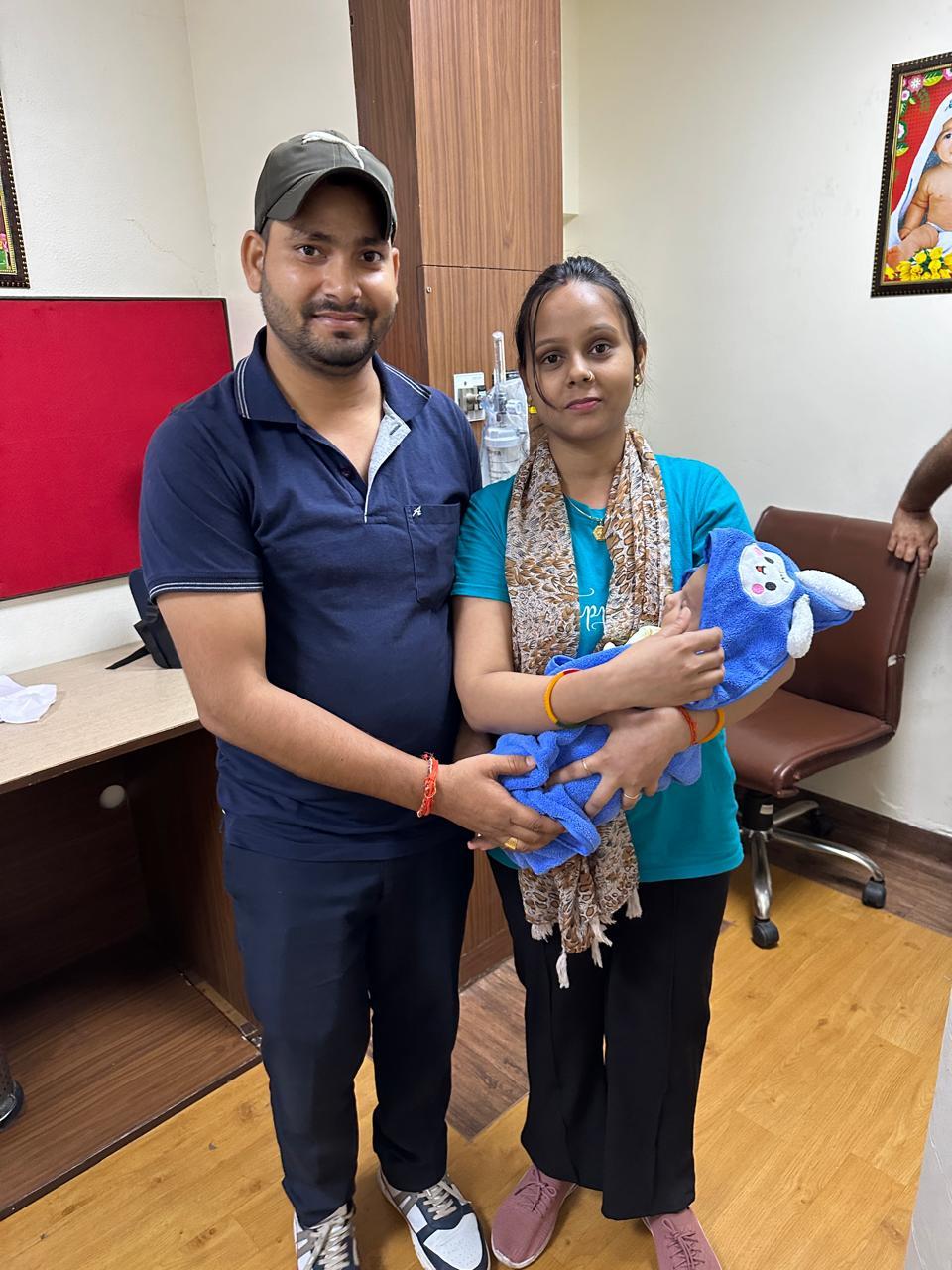
A 1.5-month-old baby girl, weighing just 1.8 kgs, has been given a new lease of life after doctors here successfully treated the hole in her heart.
The baby was brought to Fortis Escorts Heart Institute, Okhla, in a serious condition with breathing difficulties, sepsis-like symptoms, heart failure signs, elevated heart rate, excessive perspiration, inability to feed, liver enlargement, and failure to gain weight.
An echocardiogram revealed that the baby suffered from a hole in the heart, also known as patent ductus arteriosus (PDA) -- a condition where an extra blood vessel is found in babies before birth and just after birth.
"PDA is a congenital condition in children and is often underdiagnosed. This condition in infants can lead to blood stealing from systemic circulation, causing multi-organ dysfunction. In this case, the baby was in a very critical condition with a very low weight," Dr Neeraj Awasthy, Director of Paediatric Cardiology at Fortis Escorts Heart Institute, Okhla.

During the first few days of life, the PDA in the majority of kids with an otherwise healthy heart will naturally decrease and close. Extended opening may result in increased blood flow to the lungs, potentially leading to multi-organ failure. The newborn's condition worsened after receiving antibiotics and other treatments because of respiratory discomfort.
While PDA closures are often accomplished by surgery, in this case, the newborn's numerous comorbidities and fragile state made surgery too dangerous. Instead, a non-surgical approach was used -- Picolo device.
Picolo device is inserted via a small incision in the leg and guided through vessels to the heart, where it is used to seal the opening in the heart.
"The challenge here was to consider closure of the hole at such a low weight with associated features of systemic inflammation. We chose to opt for PDA device closure which helped close the hole without surgery. There are very few high-risk cases where this particular procedure has been performed," Awasthy said.
"Had the child not been treated on time, it would have been difficult to save her life," the doctor said, noting that the baby was released in a stable condition after four days.
The baby showed normal cardiac functions, gained weight, and was doing well at the 6-week follow-up, the doctor said.
(With inputs from IANS)

















